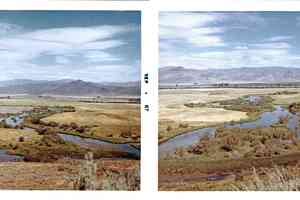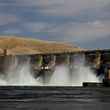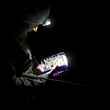Despite offering funding for environmental and conservation focused organizations, such as Growing Greener and the Pennsylvania Fish and Boat Commission, advocacy groups have been sharply critical of two bills passed last week by the Pennsylvania Senate and House of Representatives. Each body passed their own versions of similar bills designed to address regulations and fee assessments related to drilling operations extracting natural gas from Pennsylvania's Marcellus Shale formation. The Senate passed SB 1110, while the House passed HB 1950. Both bills established new, stricter regulations regarding drilling practices within the state but, according to one environmental advocacy group, were "stuffed full of goodies for the multinational drilling industry, but likely to sicken local communities, the environment, and taxpayers."
The two bills were most sharply criticized for limiting the ability of local governments to regulate how drilling takes place in their communities as well as levying only minimal fees on the drilling companies. Particular exception was taken to the impact fee assessment specified by the House bill, HB 1950, which establishes a fee of only 1 percent. Furthermore, this 1 percent fee in HB 1950 is also optional and open to negotiation by drilling companies.
PennFuture, one of Pennsylvania's leading environmental advocacy groups, released a statement saying "both bills are failures in meeting the requirements most Pennsylvanians say they want in drilling legislation. More than 70 percent of Commonwealth voters want the drillers to pay a robust tax, one that would make sure all Pennsylvanians benefit. In both bills, the General Assembly squanders an historic opportunity to make significant, long-term investments in education, economic development, human services, conservation, and more. HB 1950 and SB 1100 not only fail to provide Pennsylvanians with direct benefits for the exploitation of our natural resources, they don't even help cushion this year's budget cuts to transportation, education, health care, and other key services and programs. And under both schemes, the fees would disappear years before the drilling is finished, which means local municipalities would then be back where they started - covering the public safety and other costs of drilling themselves. "
Another major failure of both bills cited by detractors is the lack of an adequate well bonding fee. HB 1950, for instance, sets a standard bonding fee of only $10,000, while offering provisions for even lower fees for drillers with a large number of wells . However, a recent Carnegie-Mellon study found that the cost of plugging just one deep gas well may exceed $100,000. Supporters of an improved final bill point out that amendments which had strong bi-partisan support to both bills were presented by Republicans and Democrats, but were blocked by Republican leadership through "parliamentary maneuvers".































Comments